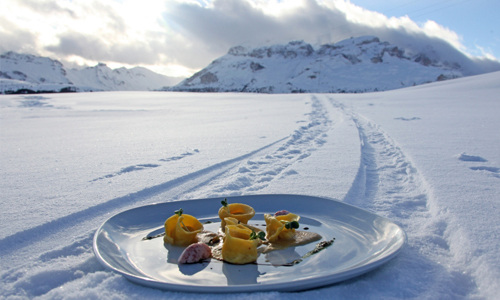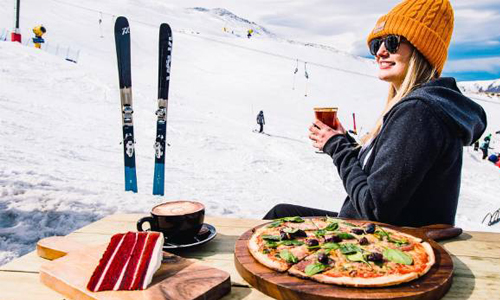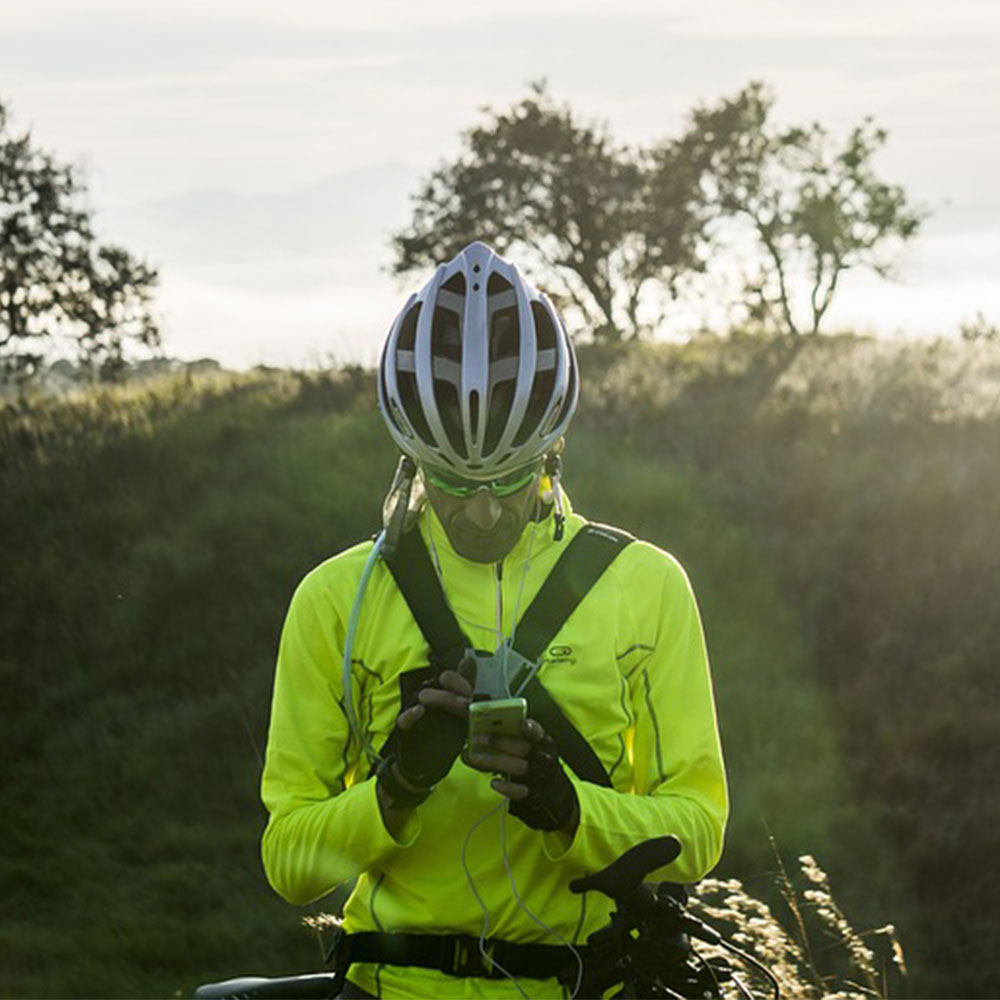How to Stay Well Fed and Healthy While Skiing
 Skiing brings with it oodles of fun, along with the stunning overindulgence of après-ski food binging sessions. It is a well-known fact that a one-week stay in the mountains can lead to considerable weight gain. Even after all those strenuous and vigorous activities - be it skiing, snowboarding, sledging etc., we hardly lose a kilo. Do not feel awkward or guilty if you are one of those who fall into this category. However, eating right while you enjoy some daring and thrilling mountain activities is something to contemplate about.
Skiing brings with it oodles of fun, along with the stunning overindulgence of après-ski food binging sessions. It is a well-known fact that a one-week stay in the mountains can lead to considerable weight gain. Even after all those strenuous and vigorous activities - be it skiing, snowboarding, sledging etc., we hardly lose a kilo. Do not feel awkward or guilty if you are one of those who fall into this category. However, eating right while you enjoy some daring and thrilling mountain activities is something to contemplate about.
While it is true that the number of calories we burn is far higher than normal, it is a not a license to satiate your voracious hunger pangs. Never misuse this fundamental freedom by wolfing down all food in sight. Most of us are unaware of the fact that skiing entails the exercising of your never-before-used muscles. Hence, eating right becomes a big deal in order to keep those muscles intact and functioning. Let us have a look at wise food choices for the three course meal, along with healthy snack options while you are up in the mountains.
Starting your day with High Protein Breakfast
Consume all high fat and high on protein diet for your breakfast. Mornings are the best time to indulge in all carbs. Opt for whole grains instead of white. Cold weather conditions demand meals that can instill energy in you in abundance.
Slow release and low-GI carbs too are required. Intake of fresh fruits implies vitamin consumption. However, one should avoid eating the whole fruit at once. Start your day by savoring the delicious porridge-honey combination, boiled or poached eggs, whole-grain toast, bagels, avocado on toast, etc., and get going with some hardcore skiing sessions.
Afternoon Meals
 Anything in extreme can kill. Therefore, daytime is not suitable for food binging. Anyone who is looking forward to get high with the adrenaline rush of skiing should avoid carbs. You wouldn’t want to have sleepy eyes and swirling head while you are skiing. Or would you? Too much food during lunch time is equivalent to a heavy dosage of sleep. Carbs in right proportion can be good though. You cannot survive on salads and a low carb diet in order to experience some action on the snow-capped mountains.
Anything in extreme can kill. Therefore, daytime is not suitable for food binging. Anyone who is looking forward to get high with the adrenaline rush of skiing should avoid carbs. You wouldn’t want to have sleepy eyes and swirling head while you are skiing. Or would you? Too much food during lunch time is equivalent to a heavy dosage of sleep. Carbs in right proportion can be good though. You cannot survive on salads and a low carb diet in order to experience some action on the snow-capped mountains.
Avoiding alcohol intake is the right thing to do, especially before a grueling skiing session. One can devour soup and breads, a sandwich stuffed with lean meat, nuts, cheese, fish, pulses and a lot of similar food items. Several resorts provide you the alternate of cooking your own lunch. Your rucksack meal, or anything that entices you, can easily be heated in the microwaves provided. Repairing muscles is essential for a successful day of skiing the next day. One should indulge in the consumption of milkshakes, yoghurts, smoothies, eggs, or low-fat cheese to cut down all unnecessary soreness.
Dinner Time
You might be tired to death and want to just hog whatever you find, but doing so is not advisable. If you are vacationing with family and friends, then probably digging into pizza is tolerable. Ignoring fatty cheese and instead opting for mushrooms, lean proteins, and fresh tomatoes is quite a good thing to do. The reason behind choosing low-fat food items is pretty clear. Digesting high carbs and fats takes a lot of time, and hence not avoiding them for dinner would mean severe stomach trouble.
Food for Children
Maintaining the energy levels of your kid is essential while taking them along for skiing. Skiing can lead to a lot of sweating, hence you need to hit the right chord. Encourage your kid to have healthy and nutritious food.
Carry peanut butter, chocolate bars, dried fruits and many such snacks that your kid can stow in their pockets and keep eating at regular intervals of skiing. A backpack full of energy drinks and snacks would be an ideal thing to carry if your kid is skiing along with you. Too much hot chocolate is not advisable, but milk works fine.
Snacks that will keep you Full
Stacking food items can be helpful in combating high-altitude stress. Post workout snacks are crucial in many ways. However, surviving on just vegetables might be a matter of concern. If you are a vegan, then make sure that you consume enough proteins.
Decide on carrying snacks that can provide you respite from mountain exertion. Keep a handful or even, for that matter, a bagful of cereal bars, flapjacks, trail mix, dried fruits, etc. which not only are good in taste but which help in the slow release of energy. However, it is advisable that one should go easy on the nuts, as intake of this would mean an unnecessary and potentially tragic intake of fats and carbs.
Water or Booze?
Higher altitudes can also lead to dehydration. This means your heart working harder than it does in normal weather conditions. Intake of water is of the utmost importance to avoid any uncalled emergencies up in the mountains. Guzzling down a beverage early in the morning, both before and after breakfast is a healthy thing to do.
All tea and caffeine lovers will face trouble. Tea, coffee, and for that matter green tea all have a diuretic effect and can lead to loss of water. If you aren’t hydrated well then your body might send you signals. A colorless urine discharge indicates that your body is well hydrated.
Never ever indulge in boozing while you are in a mood to ski. Skiing is no less serious than driving. Hence, as drinking and driving is not allowed, so should be the case while you are skiing. If you are on an overdose of alcohol, then better not try skiing as it can hamper your ability to make prompt decisions, especially when an emergency strikes. This is due to the dehydration that alcohol causes. Your chance of tripping and falling increases dramatically due to reduced concentration levels and muscle strength.
Decide for yourself what to take along and what to leave behind. If hitting the slopes is what you wish to do this season, then work out what to nosh on to make the most of this skiing experience!

Submit a Comment